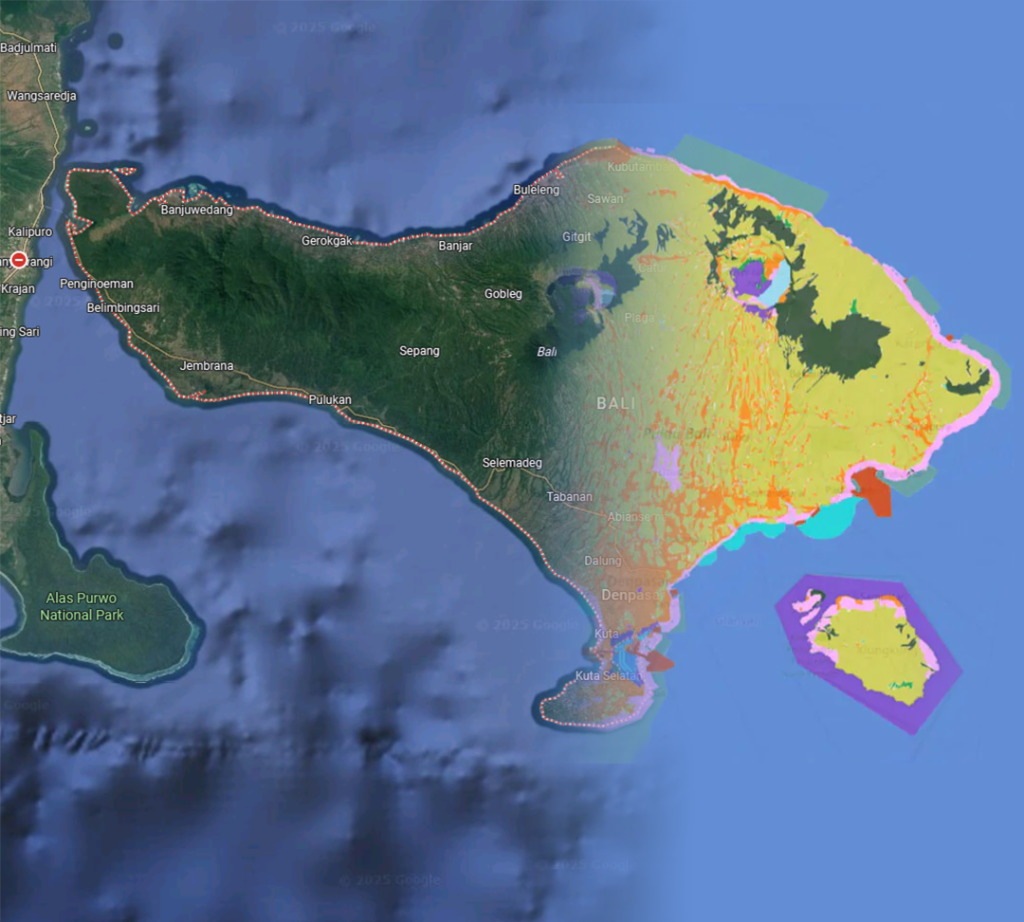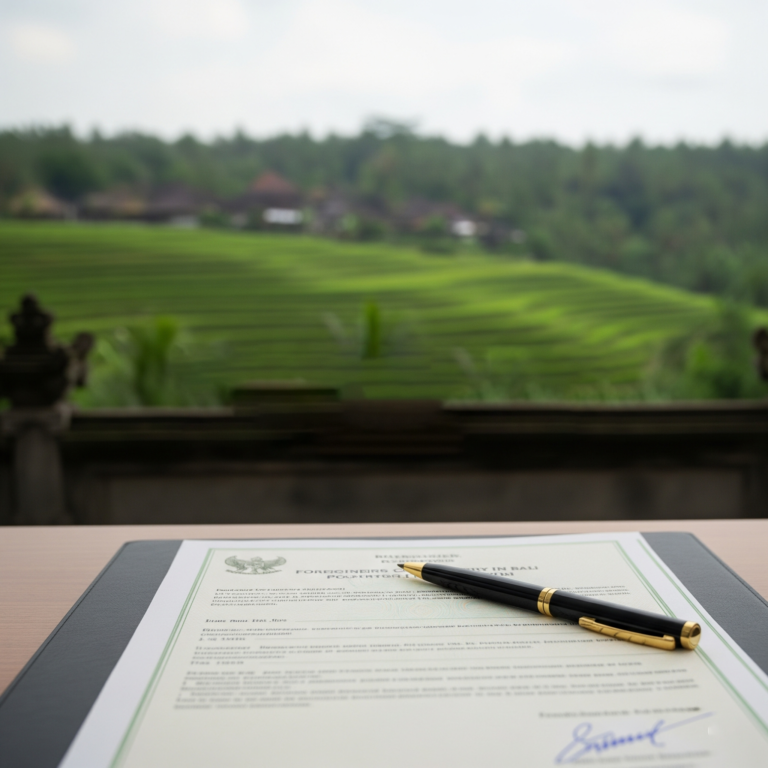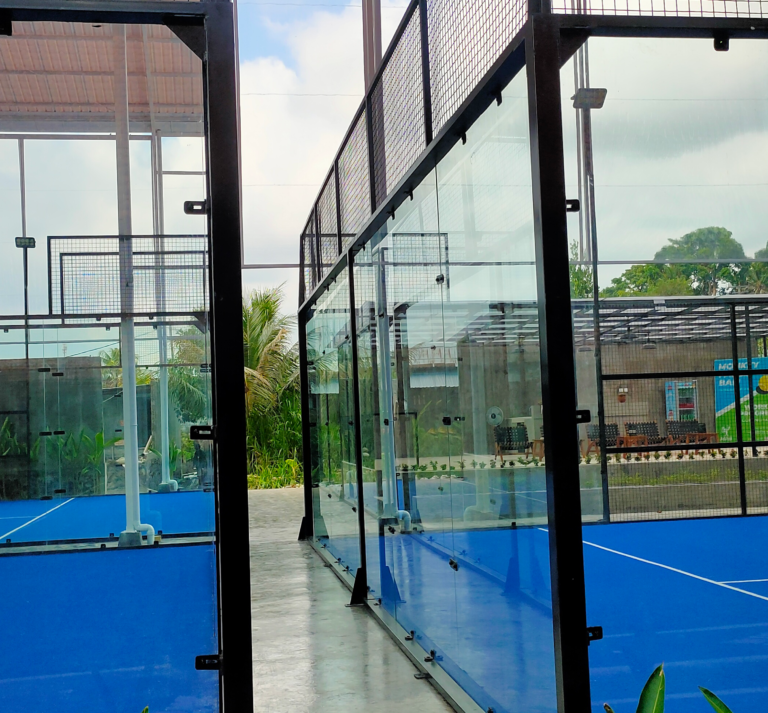Bali, the “Island of Gods,” is one of the hotspots of global investment and development, with beautiful landscapes and booming tourism. The desire to build a luxurious Bali villa project promises both sanctuary and returns. However, beneath this idyllic paradise lies a complex land zoning laws and Bali building regulations. which are often a big hurdle for Bali property development, and could easily turn a dream into a bureaucratic nightmare.
This comprehensive guide aims to demystify Bali’s land zoning laws, offering crucial insights into what you can build where, ensuring your villa project is compliant and thrives. For any investor or developer planning to build in Bali, understanding these regulations is a must. With expert guidance, you can transform your vision into reality. ASA Group Indonesia, a contractor with extensive experience in Bali property development, is your trusted partner to navigate this journey seamlessly.
Understanding Bali’s Land Zoning Basics
A basic grasp of land zoning is essential before any purchase or development is undertaken in Bali. It’s the blueprint that dictates the permissible use and development intensity of any given plot of land.
What is Land Zoning & Key Classifications
Land zoning is an urban planning system regulating land use. Zoning is a method to subdivide land into zones or regions with specific regulations regarding activities and the scale of any development. Zoning is very important in Bali as it aids in the protection of the Balinese culture, environment, and directs the course of sustainable development. Without zoning, uncontrolled development can be detrimental to the physical and cultural environment.
Bali’s land is categorized into primary zones, each with distinct implications for villa construction:
- Orange Zone : The Orange Zone permits limited building activities, within certain constraints, such as an eco-hotel. You can undertake development in Orange Zone, but it is not without significant controls.
- Green Zone : The Green zone is designated for agriculture and nature conservation. You cannot build any houses, hotels, or permanent buildings in this zone. It is intended to protect Bali’s rice paddy fields and forests..
- Red Zone : The Red Zone as almost no restrictions on what you can build, houses, hotels, or retail! The Red zone is found in the core tourist areas – Seminyak and Kuta, so if you are looking to purchase an investment property, this is a good option.
- White Zone : The White Zone is the zone for public uses such as roads, schools and hospitals, those sites and land are reserved for the well-being of the community.
- Purple Zone : Purple Zone is designated for factories, and in general, industrial purposes. It is a zone where people build factories or warehouses. They are not usually appropriate zones for housing.
- Yellow Zone : Yellow Zone is designated for housing. This includes residential villas and apartments, but mainly housing.
- Blue Zone : Blue Zone is for tourism and commercial opportunities. Here you can develop hotels, restaurants, and other tourism indicators of commerce in Bali and is ideal for investors that want to put in a business.
- Black Zone : The Black Zone is for conservation areas; temples, historical sites. No buildings can occur in the Black Zone because the land is significant due to Bali’s cultural and historical importance.
- Brown Zone : The Brown Zone allows mixed-use development; you are allowed to mix homes, businesses, and in some cases low-impact light factories.
- Pink Zone : The Pink Zone is for special developments; public parks, amusement parks,.. Attendance is the key interest with the government usually having some type of plan. You will usually need special approvals before building.
Understanding these classifications is the first critical step, as the zone directly impacts your Bali villa project’s feasibility and legality.
Importance of Due Diligence
Checking the land zoning Bali is the first important step before any purchase or development. Outdated zoning information can lead to dramatic repercussions such as: losing out on your investment, paying fines, and project delays. Always conduct thorough due diligence with local experts to obtain official zoning certificates.
Navigating the Legal Landscape: Permits & Regulations
Beyond understanding the zoning classifications, successful villa development in Bali necessitates a clear grasp of the essential permits and regulations. The legal landscape can be intricate, but with the right approach, it’s entirely navigable.
Key Regulations to Be Aware Of
Specific Bali building regulations dictate your villa’s physical characteristics:
- Building Height Restrictions: Generally 15 meters (approx. 4 stories), varying by zone/customary law, crucial for preserving natural beauty and avoiding overshadowing religious sites. Always verify exact restrictions for your location.
- Setback Rules (Garis Sempadan Bangunan – GSB): Minimum distances from boundaries (property lines, roads, rivers, beaches) for safety and aesthetic consistency.
- Green Area Requirements (KDB – Koefisien Dasar Bangunan): Maximum percentage of land covered by buildings, ensuring open space and drainage.
- Local Customary Laws (Adat Law): Significantly influence development, requiring engagement with local leaders.
The Role of Local Government & Agencies
The permit application process involves various local government bodies like the Spatial Planning Agency. Understanding their specific requirements and application sequence is vital for a smooth process.
Common Challenges & How to Overcome Them
Navigating Bali’s property development landscape presents challenges. Awareness and preparation are key.
Overcoming Challenges: Data, Bureaucracy, Legal Frameworks, and Community
Developers often face misinformation and outdated zoning data. Always verify with official sources (zoning certificates) and reputable local advisors. The complex Indonesian bureaucracy requires patience and local support; experienced consultants can streamline approvals.
Understanding key legal frameworks, including essential villa construction permits Bali and diverse land ownership structures, is vital.
- Essential Permits:
- PBG (Persetujuan Bangunan Gedung): Mandatory construction permit (replaces IMB).
- SLF (Sertifikat Laik Fungsi): Building worthiness certificate post-construction.
- Environmental Permits (e.g., UKL-UPL): For larger projects.
- Tourism Business License (TDUP/Izin Usaha Pariwisata): For commercial rental. These ensure compliance with technical, safety, and operational standards.
- Land Ownership Structures:
- Freehold (Hak Milik): Strongest ownership, for Indonesian citizens.
- Leasehold (Hak Sewa): Common for foreigners for specific periods.
- Right to Build (Hak Guna Bangunan – HGB): For building on state/freehold land; PT PMA can hold.
- Right to Use (Hak Pakai): Grants land use for a purpose/period; foreign individuals can hold. Thoroughly understand each’s implications and consult experts.
Finally, environmental and community concerns are paramount. Design sustainably and proactively enggage local communities to ensure respect and harmonious integration.
Read Also : How Foreigners Can Legally Own Property in Bali
The ASA Group Indonesia Advantage
Partnering with a knowledgeable local expert is crucial for a Bali villa project. ASA Group Indonesia is a premier partner, offering unparalleled expertise and end-to-end solutions. With decades of experience, we deeply understand Bali’s intricate zoning laws and regulations, ensuring compliant projects. Our comprehensive services cover land acquisition, design, permit processing, and construction management, providing peace of mind. We pride ourselves on reliability, transparency, and commitment to client success, leveraging our extensive local network to execute your Bali villa project to the highest standards, on time, and within budget, building lasting relationships.
Conclusion
A property development project in Bali is significant. Building your dream villa requires consideration of specific regulatory requirements, particularly land zoning. You must have a thorough understanding, such as differences between the characteristics of the Zones, and nuances relating to PBG, SLF, and local Adat Law is absolutely critical for success.
While complex, the legal landscape is entirely navigable with the right knowledge and partner. Diligent research, adherence to regulations, and leveraging local expertise mitigate risks, ensuring a secure and compliant investment.
Don’t let the complexities of Bali’s zoning laws deter your vision. Let ASA Group Indonesia be your trusted guide. With our proven expertise in Bali property development, we are equipped to handle every aspect of your villa project, ensuring a smooth, efficient, and successful journey.
Contact ASA Group Indonesia today to discuss your Bali villa project and discover how we can help you build your dream in paradise, compliantly and confidently. Your Bali dream awaits!


















